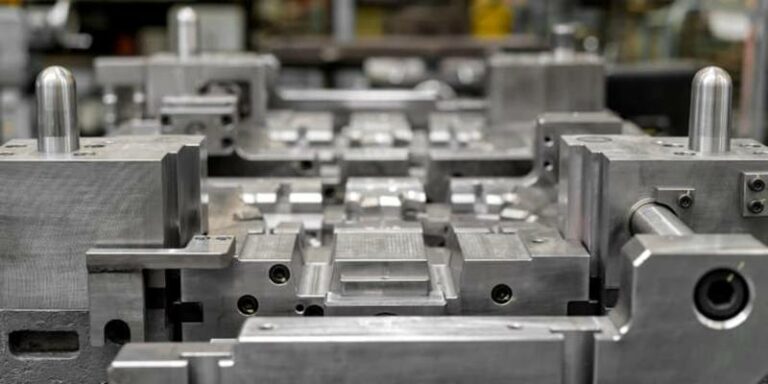Alcast Company - Questions
Alcast Company - Questions
Blog Article
The 7-Second Trick For Alcast Company
Table of ContentsThe Ultimate Guide To Alcast CompanyThe Alcast Company PDFsHow Alcast Company can Save You Time, Stress, and Money.6 Simple Techniques For Alcast CompanyThe Alcast Company IdeasEverything about Alcast Company
Chemical Comparison of Cast Aluminum Alloys Silicon advertises castability by minimizing the alloy's melting temperature level and boosting fluidity throughout casting. In addition, silicon adds to the alloy's toughness and wear resistance, making it valuable in applications where sturdiness is crucial, such as automotive components and engine components.It likewise boosts the machinability of the alloy, making it much easier to refine into ended up products. This way, iron adds to the general workability of light weight aluminum alloys. Copper raises electric conductivity, making it advantageous in electrical applications. It likewise boosts corrosion resistance and contributes to the alloy's overall strength.
Manganese adds to the toughness of aluminum alloys and enhances workability. Magnesium is a light-weight aspect that gives strength and impact resistance to light weight aluminum alloys.
8 Easy Facts About Alcast Company Described
It permits the manufacturing of light-weight elements with excellent mechanical residential or commercial properties. Zinc boosts the castability of light weight aluminum alloys and aids manage the solidification process throughout casting. It boosts the alloy's toughness and hardness. It is typically discovered in applications where intricate forms and great details are required, such as ornamental spreadings and certain automotive parts.

The main thermal conductivity, tensile toughness, return strength, and elongation differ. Select appropriate resources according to the efficiency of the target item produced. Among the above alloys, A356 has the highest possible thermal conductivity, and A380 and ADC12 have the most affordable. The tensile limit is the contrary. A360 has the very best return strength and the greatest prolongation rate.
How Alcast Company can Save You Time, Stress, and Money.

In accuracy casting, 6063 is well-suited for applications where complex geometries and high-quality surface area coatings are paramount. Instances include telecommunication rooms, where the alloy's superior formability enables smooth and aesthetically pleasing layouts while maintaining architectural integrity. In a similar way, in the Illumination Solutions market, precision-cast 6063 elements develop classy and reliable illumination fixtures that need intricate forms and excellent thermal performance.
The A360 exhibits exceptional elongation, making it excellent for complex and thin-walled elements. In precision casting applications, A360 is appropriate for sectors such as Customer Electronic Devices, Telecommunication, and Power Devices.
8 Simple Techniques For Alcast Company
Its distinct residential or commercial properties make A360 a valuable option for accuracy spreading in these markets, boosting item longevity and top quality. Light weight aluminum alloy 380, or A380, is an extensively made use of casting alloy with a number of unique characteristics. It offers exceptional castability, making it a perfect choice for precision casting. A380 exhibits good fluidness when molten, ensuring elaborate and comprehensive mold and mildews are properly replicated.
In accuracy spreading, aluminum 413 shines in the Customer Electronic Devices and Power Devices markets. It's commonly utilized to craft complex components like smartphone real estates, camera bodies, and power tool cases. Its accuracy is exceptional, with limited resistances as much as 0.01 mm, guaranteeing remarkable product setting up. This alloy's remarkable corrosion resistance makes it a superb choice for outside applications, ensuring resilient, durable items in the discussed markets.
Getting My Alcast Company To Work
When you have actually chosen that the aluminum die casting procedure appropriates for your project, an essential following action is making a decision on the most ideal alloy. The light weight aluminum alloy you choose will significantly impact both the spreading process and the buildings of the end product. Since of this, you must make your choice thoroughly and take an informed approach.
Establishing one of the most ideal aluminum alloy for your application will mean evaluating a broad array of characteristics. These comparative alloy qualities comply with the North American Die Casting Association's standards, and we've separated them right into 2 classifications. The initial classification addresses alloy features that influence the manufacturing procedure. The 2nd covers attributes impacting the residential or commercial properties of the end product.
Some Known Details About Alcast Company
The alloy you choose for die spreading directly impacts several facets of the spreading process, like exactly how very easy the alloy is to deal with and if it is vulnerable to casting defects. Warm cracking, also referred to as solidification splitting, is a normal die spreading flaw for light weight aluminum alloys that can lead to internal or surface-level tears or fractures.
Particular light weight aluminum alloys are more prone to hot fracturing than others, and your selection must consider this. One more usual problem located in the die casting of aluminum is pass away soldering, which is when the actors adheres to the die walls and makes ejection challenging. It can harm both the cast and the die, so you must look for alloys with high anti-soldering homes.
Deterioration resistance, which is currently a noteworthy characteristic of over at this website light weight aluminum, can differ considerably from alloy to alloy and is a necessary characteristic to consider depending upon the environmental conditions your item will be revealed to (aluminum casting manufacturer). Put on resistance is one more home frequently looked for in light weight aluminum items and can differentiate some alloys
Report this page